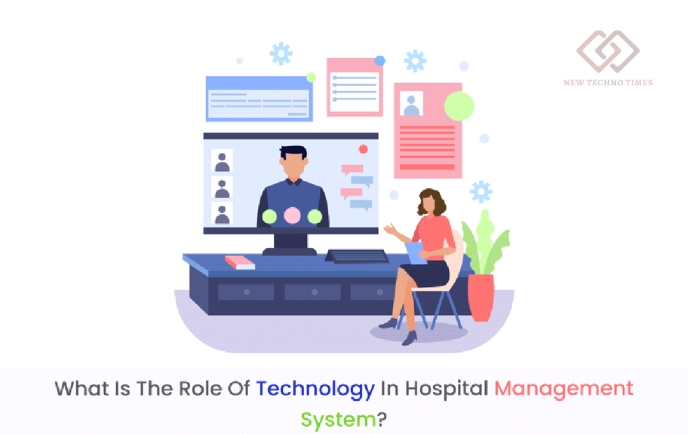Introduction
Technology is not simply a collection of tools; it is the heart of modern management systems, adding a human element to the operations and patient care provided by medical institutions. Let’s examine more closely at how these technology advancements are improving the quality of life for both patients and medical professionals:
Imagine having your complete medical history in one convenient location, accessible with a few clicks. The brilliance of the Hospital Information Management System lies in that. They make it possible for your medical team to have all the information they require at their fingertips, guaranteeing that you will receive individualized treatment that is catered to your particular requirements.
Doctors and nurses will also have more time to concentrate on what truly matters taking care of you if they do away with the paperwork.
Overview of Technology in Hospital Management System
Nobody likes dealing with piles of papers or waiting in line for hours on end when they’re not feeling well. All of that has been altered by the management of patient systems, which simplify the administrative elements of healthcare.
The hospital management system online solutions return control to you by letting you manage claims for insurance and make appointments online, freeing you up to focus on your health rather than navigating red tape.
The Hospital Management System may be very helpful when accessibility or mobility concerns prevent a patient from obtaining care in time for their appointment.
You may communicate with your healthcare professional from the comforts of your residence with simply an audio call, guaranteeing that assistance is always available.
Also Read: Medical Billing Software Solutions for Outsourcing Partners
Why is Technology Important in the Hospital Management System?
Inventory and Supply Chain Management
Patients as well as healthcare providers may find it disastrous to run short of necessary medical supplies. Hospitals are fortunately always well-stocked with anything from gauze to life-saving medications thanks to technology supply chain management and inventory systems.
Through the streamlined procurement process and reduced wastage, these solutions guarantee that patients receive the appropriate care without needless delays.
Clinical Decision Support Systems
Although healthcare professionals are superheroes, everyone might use a little assistance from time to time. Here’s when CDSS is useful.
These tools offer significant insights and recommendations to help physicians make the best choices for their patients by assessing a great deal of data and scientific literature.
It’s like having a reliable counselor at your side to guide you through the difficulties of contemporary medicine.
Health Information Exchange
Your health should be an adventure that takes you all through multiple treatment environments, instead of just Hospital Management Systems In Healthcare. Your medical records are always accessible to you thanks to the HIE platforms, which provide easy communication between healthcare professionals.
This entails having more meaningful talks regarding your physical and mental well-being while doing away with the need to keep reiterating identical facts.
Security and Compliance
Any connection, including the one between patients and healthcare professionals, is built on trust. The clinic management systems therefore prioritize data security and adherence to laws such as HIPAA.
Hospitals provide you with the peace of mind you need by putting robust safety precautions and effortless compliance tools in place to ensure that your private data is safe and secure by the hospital management system india.
Additionally, remote monitoring gadgets give a piece of mind to those who manage persistent illnesses by continuously monitoring your health and enabling early intervention when necessary.
The Role of Technology in Hospital Management System
Electronic Medical Records (EMR)
Instead of hospital management system modules readily accessible. you picture needing to go over many documents on paper.
With electronic medical records, innovation makes this tedious procedure effortless (EMRs). Your whole medical history is stored in these digital hubs, giving medical professionals a complete picture of your health journey.
With EMRs, the emphasis is shifted from paperwork to individualized treatment, strengthening the rapport between patients and clinicians.
Patient Management
By providing patients the means to actively participate in their treatment, hospital management systems prioritize the needs of their patients.
Patients may view lab results, schedule appointments, and securely connect with their care teams with the use of patient portals and mobile applications.
The hospital queue management system creates a feeling of partnership between patients and providers by encouraging openness and cooperation, turning healthcare into a shared experience as opposed to a one-sided transaction.
Clinical Support and Decision-Making
Healthcare workers may concentrate on the thing they do best caring for patients by utilizing technology to relieve them of day-to-day duties.
Hospitals are guaranteed to have the resources needed to provide high-quality care thanks to technology. Inventory management systems make sure that necessary supplies are always accessible by automating replenishment, tracking stock levels, and reducing waste.
Acquisition processes are streamlined by seamless connection with suppliers, freeing up healthcare practitioners to concentrate on what matters: the health of their patients.
Secure Patient Information
The hospital management system advantages is that the security and confidentiality of patients come first. Cyber threats and illegal access are stopped from accessing private information using robust encryption, limitations on access, and compliance procedures.
Also Read: Simplifying Payroll: 10 Software Solutions Ideal for Medium-Sized Businesses
Conclusion
In the end, technology is really about humans, rather than statistics and algorithms. The goal is to improve healthcare for all parties by making healthcare less costly, efficient, and compassionate.
Hospitals are not only revolutionizing their operations but also placing patients at the heart of all their activities by embracing these technological developments.
Although tech plays a major role in the complex dance of hospital administration, its real function is to benefit everyone it comes into contact with, including administrators, patients, and medical personnel.
We, at New Techno Times aim to provide the best technology information to readers to gain knowledge of what is going on in the world around us. For related blogs about cybersecurity and technology, Digital Marketing, Business, Education keep following us.

